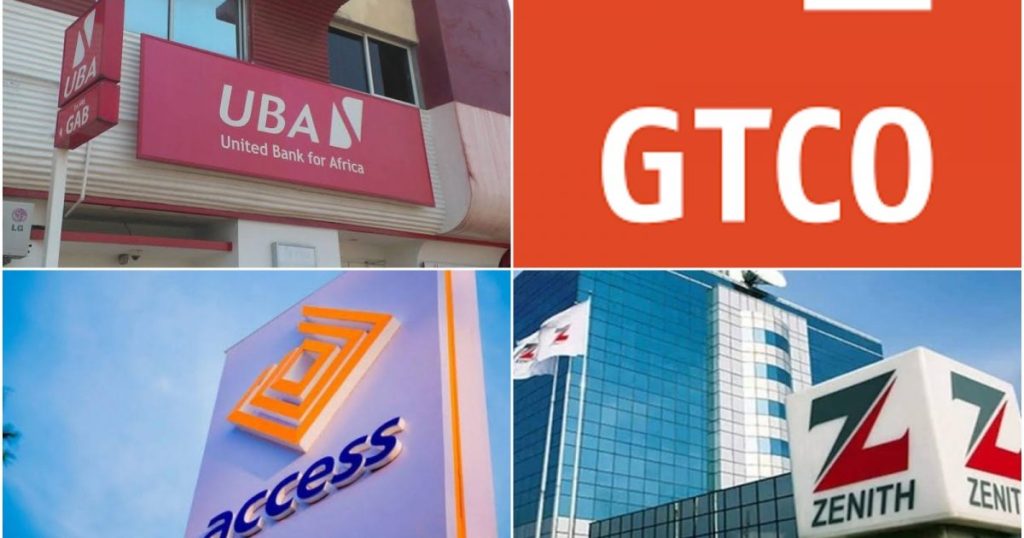In the first half of 2024, seven banks in Nigeria collectively paid N392.53 billion in taxes, as reported in their second-quarter financial statements filed with the Nigeria Exchange. This significant tax expenditure encompasses various levies, including corporate tax, minimum tax, information technology tax, tertiary education tax, and the Police Trust Fund levy among others. These levies reflect the government’s efforts to diversify revenue sources and ensure that profitable sectors contribute their fair share to public finances. The Federal Inland Revenue Service underlines that the Company Income Tax is set at 30% on corporate profits, alongside a 7.5% Value Added Tax that is ultimately borne by consumers during purchases, illustrating the structured approach the government has employed in taxation.
Among the banks, Guaranty Trust Holdings (GTBank) stood out as the largest tax contributor, with an income tax expense of N110.90 billion, which represented a dramatic 292.5% increase from N28.17 billion in the same period last year. Following GTBank, the United Bank for Africa (UBA) reported an impressive tax expense of N85.22 billion, up 235.5% from N25.41 billion in H1 2023. Access Bank also showed a significant surge, with tax expenses rising 215.4% to N80.89 billion. Conversely, Zenith Bank recorded an increase of 90% in tax expenses, reaching N59.59 billion. Smaller contributions came from Wema Bank and Fidelity Bank, with tax expenses of N3.97 billion (a rise of 48.1%) and N44.03 billion (up 232.0%) respectively. However, First City Monument Bank experienced a notable decrease in its tax obligation, which fell by 29% to N7.93 billion from N11.30 billion in H1 2023.
The rise in bank tax contributions raises critical discussions on the balance between profits and dividends. According to Teslim Shitta-Bey, Chief Economist and Managing Editor of Proshare, while increased tax expenses may not influence the operational aspects of the banks directly, they can certainly impact shareholder dividends and retained earnings vital for future investments. The implication is that while banks generate significant profits, shareholders are primarily interested in dividends. Consequently, banks must navigate the delicate balance of distributing profits to shareholders while reinvesting substantial parts back into the bank’s operations, be it for lending or upgrading technology.
As the financial landscape evolves, opinions on the unusual profitability of banks vis-à-vis other sectors emerge. Financial expert Rotimi Fakeyejo has noted that many other sectors have suffered losses tied to foreign exchange challenges, which puts banks’ profitability into perspective. He attributes the government’s decision to enhance taxation on banks to their unusual profit margins, indicating a strategic focus on tax revenue generation from successful sectors. Fakeyejo assures that this added tax burden has not detracted from dividend payouts or shareholder returns, reinforcing a robust financial environment for these banking institutions as they navigate their operational capabilities.
Additionally, another financial analyst, Olaid Baanu, offers a somewhat optimistic perspective on the growing tax obligations for banks. He suggests that the strong profitability that many banks have reported positions them favorably to absorb the increased tax rates without detrimental effects on their overall financial health. Baanu emphasizes that the banks’ solid financial performance ensures that the reactiveness of tax hikes will not significantly impact their operations or profit margins, thus serving as a constructive revenue source for the government.
In a broader context, the tax contributions from the banking sector can be aligned with the trends observed in multinational companies. The PUNCH reports that companies like Google, Netflix, and Facebook collectively paid N2.55 trillion in taxes to the Federal Government within the first six months of the current fiscal year. This juxtaposition underscores the trend of growing fiscal responsibilities among high-earning sectors, both domestic and international. As such, the steady inflow of tax revenue from these banks not only supports government initiatives but also highlights how the financial sector has maintained resilience even amidst economic challenges faced by other industries.














